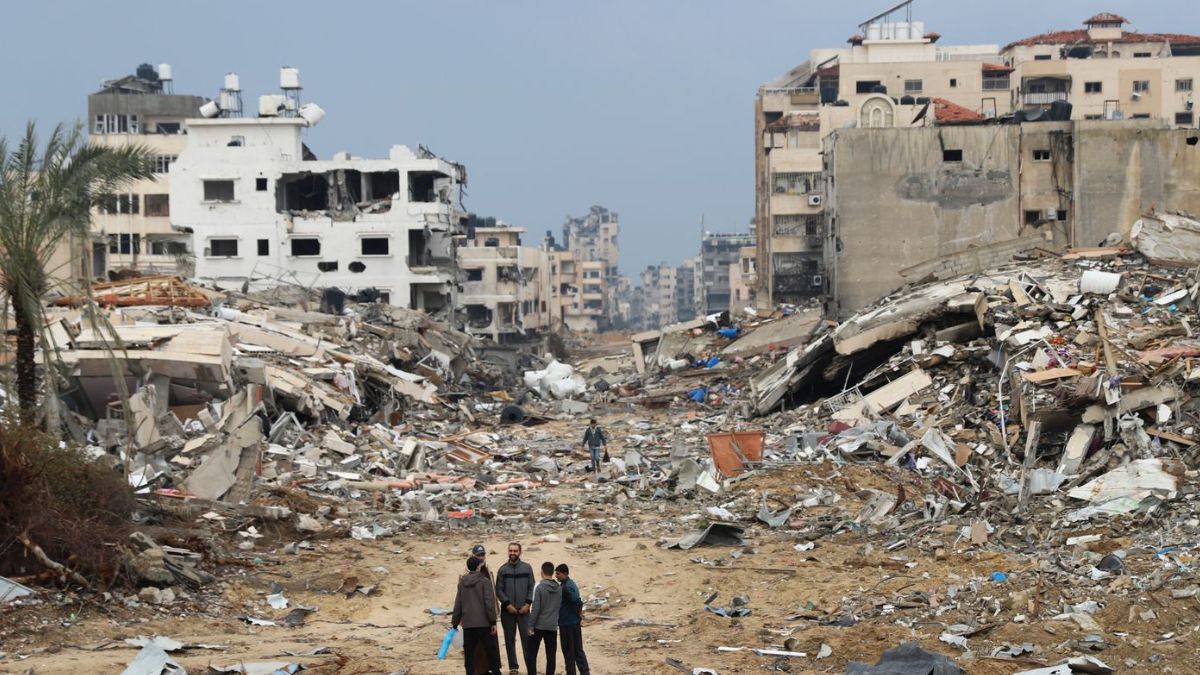As the ongoing war in the Gaza Strip drags on, Palestinians there have increasingly started to criticise the enclave’s Hamas rulers.
The terrorist group Hamas has ruled Gaza since 2007 when it took control of the Palestinian enclave after defeating and driving out Fatah, the mainstream Palestinian party that runs the internationally-recognised Palestinian Authority (PA) in the West Bank.
Under Hamas’ control, Gaza has suffered economically as jobs remain scarce and has had little personal freedoms as the terrorist group does not allow dissent or criticism. As the control of the group has slipped from large swathes of Gaza since the Israeli invasion amid the ongoing war, Palestinians have begun to criticise the group for bringing to them death and destruction.
Yahya Sinwar, the chief of Hamas in Gaza and the architect of October 7 attack that triggered the ongoing war, has been fuelling the conflict and encouraging the deaths of civilians and destruction of Gazan infrastructure with the intention of driving the conflict further and isolating Israel internationally.
Support from Hamas after October 7 attack has now fallen
The popularity of Hamas soared among Palestinians with the October 7 attack on Israel in which terrorists killed more than 1,200 Israeli and foreign nationals and injured thousands more. They also indulged in rampant rapes and sexual abuse of women and took more than 250 hostages.
Videos from the time showed Palestinians in Gaza cheering as the attack unfolded in Israel and sloganeering was also seen as injured hostages were being paraded by Hamas in Gaza. A survey by Palestinian Center for Policy and Survey Research (PCPSR) released in December 2023 affirmed the support.
Impact Shorts
More Shorts“Wide public support for Hamas’ offensive on October the 7th, but the vast majority denies that Hamas has committed atrocities against Israeli civilians,” said the PCPSR in the summary of the survey report, adding that the Hamas gained support at the expense of PA.
Such fawning views of Hamas have, however, reversed now, according to a survey conducted in March.
The survey by the West Bank-based Institute for Social and Economic Progress (ISEP) found that majority of Gazans —59.9 per cent— rejected Sinwar, the Hamas chief of Gaza who has been using them for the terrorist group’s agenda.
The survey found that Gazans similarly rejected —57.6 per cent of them— the overall Hamas chief Ismail Haniyeh, who is based in Qatari capital Doha where the terrorist group has its headquarters.
The survey found that Gazans do not want Hamas to rule them at all. Just 3 per cent of Gazans wanted Hamas to rule them after the war. Their preference for post-war rule in Gaza was: PA: 44.6 per cent, unity government: 33.9 per cent, Arab/international coalition: 18.5 per cent.
‘May God curse them’
In media reports from Gaza, Palestinians have increasingly been quoted being critical of Gaza in recent days.
“I pray every day for God to punish the one who brought us to this situation. I pray every day for the death of Sinwar,” said Mohammed from Gaza to Financial Times in April.
In a video recorded by the BBC outside a hospital, a resident accused Hamas of pushing them into the war.
“I am an academic doctor. I had a good life, but we have a filthy [Hamas] leadership. They got used to our bloodshed, may God curse them! They are scum! I’m one of you but you are a cowardly people. We could have avoided this attack!” said the resident.
The report further said that there is anger against Hamas for hiding hostages in civilian houses and firing rockets into Israel from civilian neighbourhoods. For a long time, Israel has accused Hamas of embedding itself in the midst of civilian areas to carry out terrorist activities and has blamed such practices for the destruction of localities and civilian casualties in the cross-fire.
Gazans have been swearing and cursing at the leaders of Hamas in the markets, according to the report. Locals told the BBC that they have named their animals like donkeys after Hamas leaders like Sinwar and shout “Yallah, Sinwar” to drive their donkey carts.
“People say things like, ‘Hamas has destroyed us’ or even call on God to take their lives. They ask what the 7 October attacks were for - some say they were a gift to Israel,” said a man to the BBC.
)